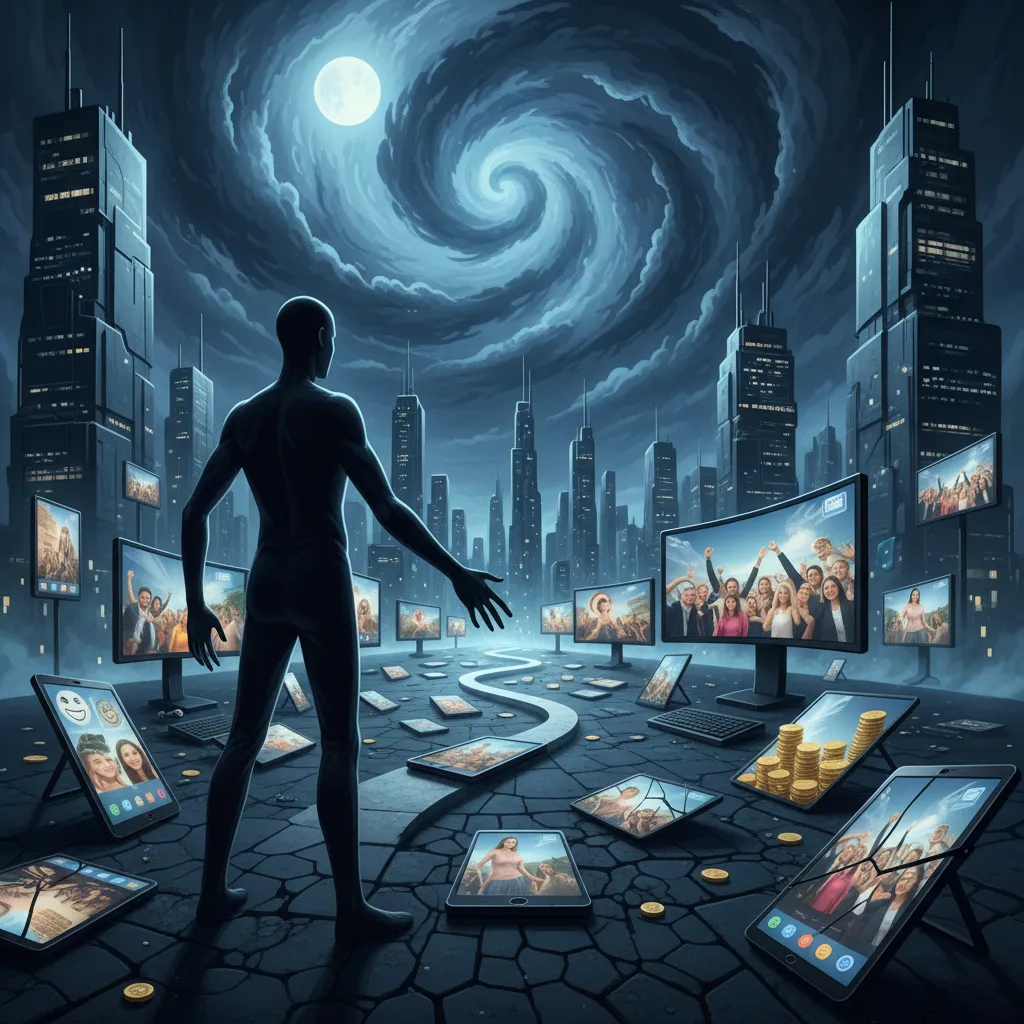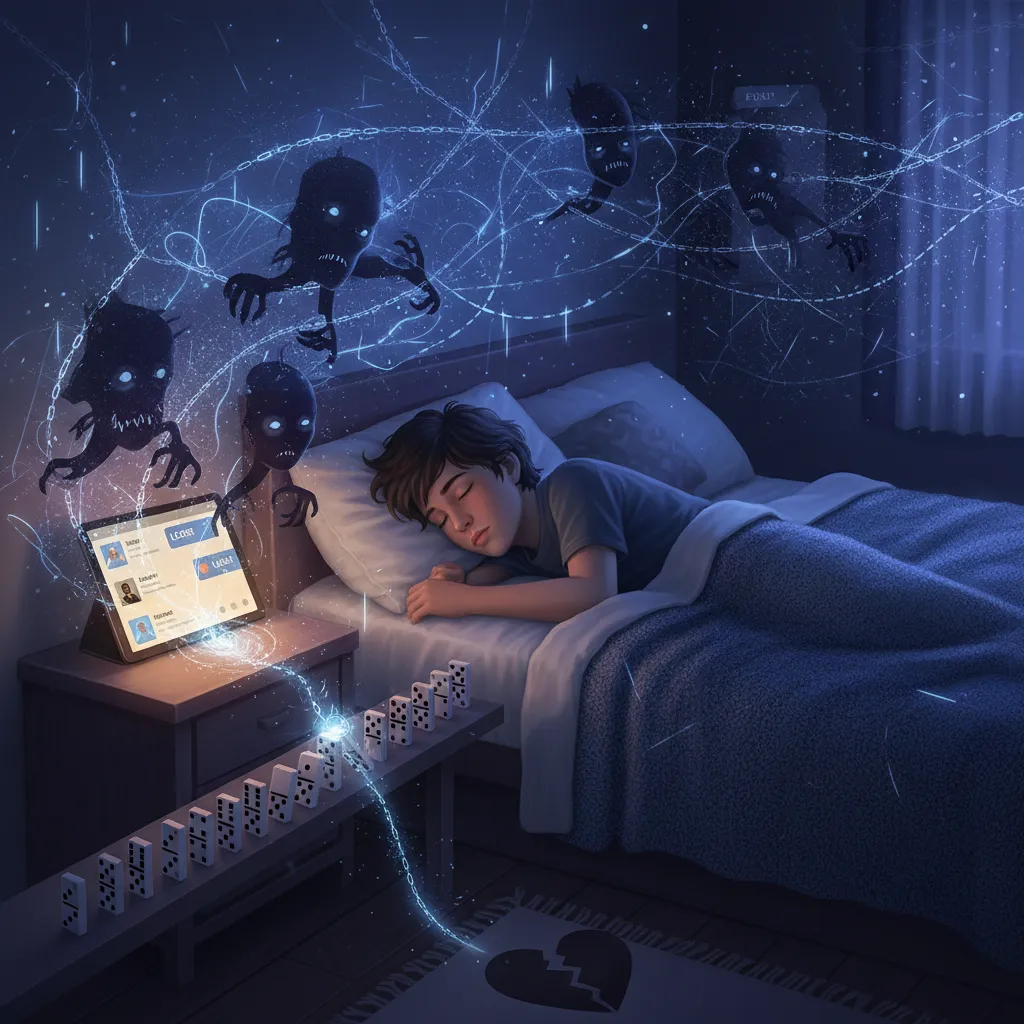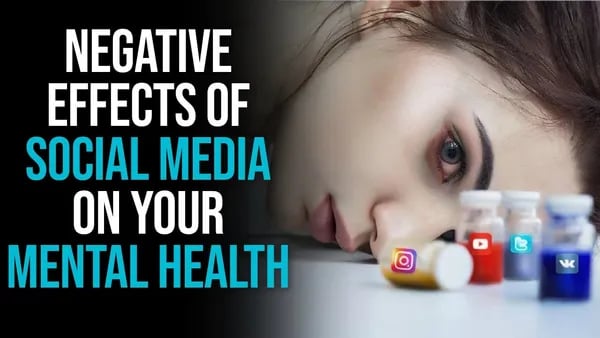My phone buzzed at midnight—again. I rolled over, promising myself 'just five minutes' of scrolling before sleep. You know how this ends. Two hours later, I was comparing my quiet Tuesday night to photos of neon-lit parties, beach sunsets, filtered faces, and perfectly curated lives. If you’ve ever felt strangely empty after a social media deep dive, you’re far from alone. Let’s unpack why those little apps can loom so large over our self-esteem, sleep, and sanity.
Mirror, Mirror on the Phone: Social Media and Self-Image
When you scroll through social media, it can feel like everyone else is living their best life—sunny beaches, perfect parties, and flawless faces fill your feed. But behind these curated images, there’s a hidden cost: the impact on your self-image. Social media and body image are closely linked, and the constant exposure to idealized photos can trigger body image issues and self-doubt, especially among teens and young adults.
It’s easy to forget that what you see online is often a highlight reel. Most people only post their happiest moments or their best angles. This creates unrealistic standards for beauty, success, and even everyday life. When you’re at home, maybe feeling bored or left out, seeing friends or influencers enjoying themselves can make your own life seem less exciting by comparison. This sense of missing out is more than just FOMO—it can actually harm your self-esteem.
Curated Content and Unhealthy Comparison
Social media platforms amplify self-comparison. You might see pictures of people you know at parties or on vacation, and it’s natural to start comparing your own experiences. These comparisons can lead to feelings of exclusion or inadequacy. In fact, research shows that youth with heavy social media use are at higher risk for body image distortion and eating disorders. Photo-driven platforms, in particular, have been linked to increased rates of body dissatisfaction.
- Curated feeds often show only the best moments, hiding real struggles.
- Filtered perfection sets unrealistic benchmarks for beauty and happiness.
- Comparison can trigger dissatisfaction with your own body or life.
I remember once, after seeing an endless stream of fitness posts, I signed up for a yoga class. Instead of enjoying the experience, I found myself comparing my wobbly poses to the seemingly effortless moves of influencers on Instagram. It’s a common trap: measuring yourself against a filtered version of reality.
Who Feels the Impact?
The negative effects of social media are strongest among teens, young adults, women, and minority groups. For many, the pressure to look a certain way or to keep up with others online can be overwhelming. As one expert put it:
"Self-image is the biggest problem coming from social media and each of the other issues can relate back to it."
Body image issues and self-esteem often take the biggest blow. When you’re exposed to only the ‘highlight reel,’ normal, imperfect days can seem lacking. This can lead to a cycle of comparison, dissatisfaction, and even anxiety or depression.
Body Positive Content: A Brighter Side
There is hope, though. Exposure to body positive content on social media can actually improve body appreciation and satisfaction. Accounts that promote self-compassion, diversity, and realness can help counteract the negative effects social media often brings. Still, these positive voices are often drowned out by the flood of filtered perfection.
Understanding the link between social media and body image is the first step in breaking the cycle of unhealthy comparison. By following body positive creators and reminding yourself that most posts are carefully curated, you can start to protect your self-image and mental health.

FOMO, Anxiety, and the Trap of Unrealistic Expectations
Ever felt edgy after seeing friends hanging out without you? Welcome to the Fear of Missing Out (FOMO). In today’s digital world, FOMO is more common than ever, fueled by the constant stream of updates on social media platforms. As you scroll through Instagram, WhatsApp, or Snapchat, it’s easy to feel left out when you see others enjoying parties, trips, or even simple get-togethers you weren’t invited to. This feeling is summed up perfectly in the quote:
“FOMO is a kind of fear of missing out on a positive event or experience in another’s life.”
FOMO doesn’t just make you feel left out—it drives you to check your phone over and over. You might find yourself compulsively opening WhatsApp to see if your friends have messaged you, or refreshing your feed to catch the latest story updates. This behavior isn’t just a harmless habit. Research shows that FOMO is fueled by increased social media screen time and can spiral into compulsive checking, sometimes multiple times an hour. This constant monitoring can disrupt your daily life and even your sleep, as the anxiety of missing out lingers in your mind.
The impact goes deeper. Anxiety from social media usage is rising, especially among heavy users. Studies reveal that those who spend more time on social platforms report higher rates of anxiety and depression. The pressure to stay in the loop, to not miss out, and to keep up with everyone else’s highlight reels can leave you feeling constantly on edge.
But it’s not just about missing events. Unrealistic expectations on social media are another trap. You mostly see the best, most curated moments of others’ lives—smiling faces, perfect vacations, flawless skin. It’s easy to forget that, as the saying goes, “Everything That Glitters Is Not Gold.” People rarely share their struggles, bad days, or insecurities. The person posting a joyful group photo might be feeling lonely or stressed in real life. Someone showing off their perfect body or lifestyle may have used filters, editing tools, or even staged the moment just for likes and comments.
This endless comparison can harm your self-esteem. When you measure your everyday reality against someone else’s highlight reel, it’s natural to feel like you’re falling short. Over time, this can lead to body dissatisfaction and even trigger conditions like body dysmorphic disorder, especially when you’re constantly exposed to filtered, unrealistic images. The chase for external validation—likes, comments, and shares—can make you anxious, always striving for approval that never quite feels enough.
It’s important to remember: social media rarely reflects the full truth behind the smiles and sunsets. FOMO amplifies social anxiety and disrupts healthy self-perception. Even when you know that what you see isn’t the whole story, it’s hard to shake the sinking feeling of being left out or not measuring up. Chronic comparison sows seeds for anxiety and can even lead to depressive symptoms, making it crucial to be mindful of how much time you spend scrolling and how you interpret what you see online.
Sleep, Cyberbullying & the Digital Domino Effect
It’s easy to think that a few minutes of late-night scrolling won’t hurt, but the truth is, “just 10 minutes” on social media often turns into hours. This habit quietly dismantles healthy sleep patterns and sets off a chain reaction that affects your mental health, self-image, and emotional resilience. The impact of Social Media Addiction goes far beyond lost sleep—it’s a digital domino effect that can leave you feeling anxious, isolated, and exhausted.
Sleep Disruption: The Hidden Cost of Scrolling
Many studies show that screen time after 9pm strongly disrupts sleep quality. Teens, for example, sleep up to 90 minutes less on school nights when using devices late. Overuse of social media delays bedtime, chips away at your mental resilience, and makes it harder to manage stress. As one expert puts it:
‘Spending too much time on social media can make you an insomniac and your sleep pattern gets ruined with the excess abuse of social media.’
When you sacrifice sleep for endless reels or memes, you’re not just losing rest—you’re also making yourself more vulnerable to anxiety and negative emotions. Sleep disruption from social media is directly linked to increased anxiety and worsened mental health outcomes. The algorithms are not your friend; they’re designed to keep you hooked, not help you log off.
Cyberbullying: A 24/7 Threat
Before the rise of platforms like Instagram and Facebook, bullying was mostly a face-to-face issue. Now, Cyberbullying Social Media is a 24/7 potential threat. Reports of cyberbullying have increased as more people join these platforms. What once were spaces to connect with friends have, for many, become toxic environments where negative comments and harassment are common.
- Cyberbullying is no longer limited to school or work hours—it can happen anytime, anywhere.
- Seeking external validation, especially among teens, often leads to disappointment and exposure to online abuse.
- Many users, especially young women, report being bullied in comment sections after posting selfies or personal updates.
A friend of mine deleted Facebook for a month after receiving toxic comments under a harmless selfie—her anxiety immediately eased. This is a common story: the pressure to seek approval online can quickly turn into a source of stress and insecurity, especially when faced with negativity or harassment.
The Vicious Cycle: Sleep, Anxiety, and Social Media Impact
Lack of sleep is both a symptom and a cause of mental health decline linked to social media. When you’re tired, you’re more sensitive to online negativity. This mental fatigue makes it harder to brush off mean comments or cyberbullying, creating a vicious cycle:
- Late-night scrolling leads to Sleep Disruption Social Media.
- Sleep loss increases anxiety and lowers your ability to cope with stress.
- Heightened anxiety makes you more vulnerable to cyberbullying and negative comparisons.
- Negative experiences online further disrupt sleep and self-image.
Cyberbullying on social media platforms contributes to mental health issues, including low self-esteem and social impairments. The constant comparison, fear of missing out, and pressure to keep up only add to the stress. Remember, your sleep and mental well-being are more important than any like, comment, or follower count.

Small Actions, Big Shifts: Taking Back Control
It’s easy to lose track of time while scrolling through social media, especially late at night. Before you know it, you’re sacrificing precious sleep and waking up feeling drained. But here’s the good news: small, intentional changes can make a huge difference. By using apps to monitor screen time, you can set healthy limits and reclaim your evenings for rest and real-life connection. Research shows that people who limit their social media use to just 30 minutes a day report significant improvements in mood and overall well-being. Digital wellness tools are more popular than ever, and for good reason—they help you become more aware of your habits and give you back control over your time.
One of the most effective steps you can take is to replace mindless scrolling with simple, positive activities. Try going for a short walk, calling a friend, or jotting down your thoughts in a journal. These small actions might feel awkward at first, but they can quickly reset your mood and energy. Over time, these moments away from the screen add up, helping you break the cycle of compulsive checking and giving your mind a much-needed break.
Another powerful shift comes from curating your social media feed. When you intentionally follow body positive content and join social media support groups, you surround yourself with encouragement and real stories of self-acceptance. These online communities can be a source of genuine support, especially when you’re feeling isolated or struggling with self-image. Social media, when used wisely, can have positive effects—connecting you to people and resources that uplift rather than undermine your confidence.
If you’re looking to make a change, consider starting with a digital detox. Even a few days away from the feed can improve your mood and energy levels. Apps that monitor your usage make it easier to stick to your goals, sending gentle reminders when it’s time to log off. As one expert put it,
“Finding ways to reduce social media usage has positive results on people.”The science backs this up: limiting exposure to harmful content and reducing screen time can lead to better sleep, less anxiety, and a more positive self-image.
The impact of social media on your life isn’t set in stone. By taking small, mindful steps—like using screen time monitors, curating your feed for positivity, and seeking out supportive communities—you can shift your relationship with technology for the better. Sometimes, the most powerful thing you can do is simply step back and choose what you let into your digital world. In the end, these small actions can lead to big shifts, helping you take back control and shape a healthier, happier online experience.




